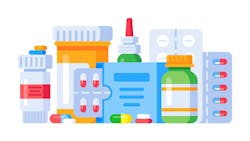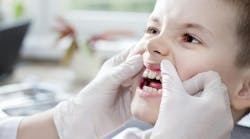Do you know what's in your medication?
As dental professionals, we know that with any medication you take, there are tradeoffs. All meds come with side effects. Be aware of the side effects by doing your own research, and decide with your doctor if the benefits outweigh the risks.
A great example of a medication with risks that were not revealed until just a few years ago is Benadryl. I took it years ago to help me sleep better. Turns out, Benadryl is an anticholinergic drug.
Anticholinergic drugs are medications that block a neurotransmitter called acetylcholine. About 600 medications block the action of acetylcholine. We take these meds for a variety of reasons such as sleep, allergies, depression, urinary incontinence, and Parkinson’s. The problem with anticholinergic medication use is the risk they pose in increasing the likelihood of having dementia.
Read the labels to be aware of what’s in your medications. Encourage your patients to do the same, and of course, closely read their medical history and ask followup questions regarding their medications.
Read my entire blog to learn more, and visit my website for more informative blogs.
Barbara Tritz, MSB, BSDATE, BRDH, is a biological dental hygienist and orofacial myofunctional therapist whose blog, Queen of Dental Hygiene, provides patients the information they need to help them on their healing journey. “Our one-hour appointment time was just not long enough to share all the many important facts I wanted our patients to learn. Dental hygiene is about so much more than just teaching brushing and flossing," says Barbara. “We are healers, educators, and lifesavers, and we need to give our patients the tools and skills to empower them to true wellness and health.”
About the Author

Barbara Tritz, MSB, BSDATE, BRDH
Barbara is a practicing biological dental hygienist at Green City Dental in Edmonds, Washington. She is the owner of Washington Oral Wellness in Kirkland, Washington, where she practices orofacial myofunctional therapy. She completed her accreditation in biological dental hygiene through the International Academy of Oral Medicine and Toxicology, and is laser certified through the Academy of Laser Dentistry. In 2019 Barbara received the HuFriedy-American Dental Hygienist Association Master Clinician Award. Barbara can be contacted at [email protected].


